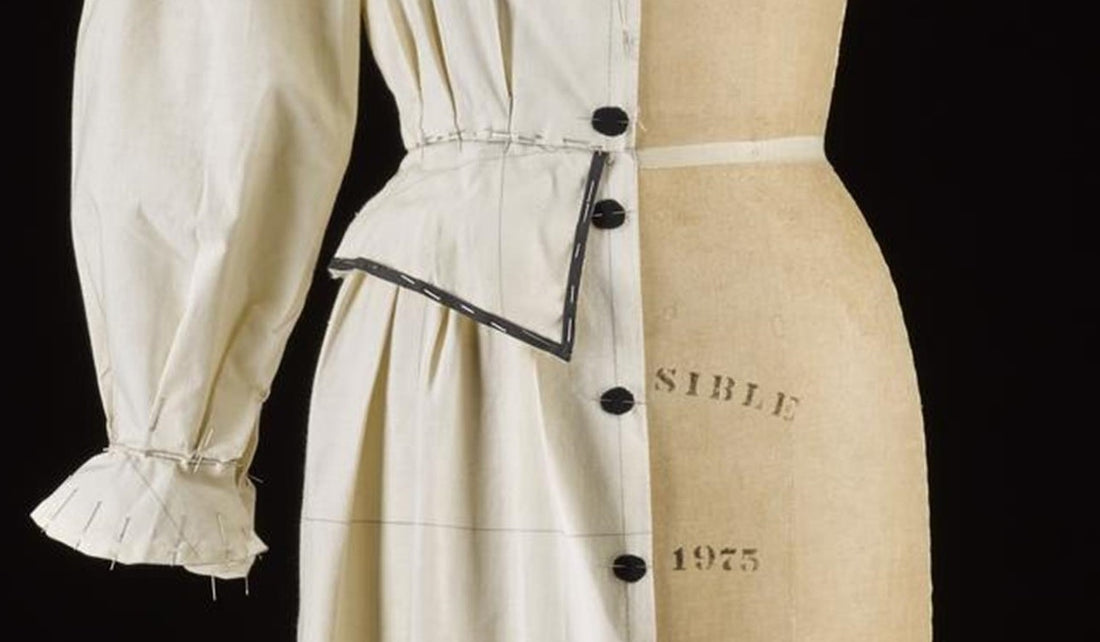
Hands Need the Mind

Image: Toile of calico for Jean Muir dress style number D333, Jean Muir Ltd. archive via National Museums Scotland.
Jade Halbert is a historian, a Lecturer in Fashion Business and Cultural Studies at the University of Huddersfield and one of BBC Radio 3’s New Generation Thinkers. During lockdown, Halbert tried home sewing for the first time, and in an essay reflects on the process of making a dress from a 1993 Jean Muir pattern. Here she shares an extract with us. “Jean Muir was a powerful advocate for skilled fashion workers, obsessive about perfection and high standards, and in March 1994, after some 28 years at the top of British fashion, she put down her needle and thread and took up pen and paper. The resulting manuscript, what she called her ‘manifesto for real design’, was a Sunday Times cover story in which she argued for the importance of British fashion manufacturing and appealed for it to be recognised and valued as skilled industry.”

Image: Sketches, Jean Muir Archive, Museums of Scotland.
“When the dress is finished and I try it on, I realise that for the first time I’m wearing a garment and I actually understand something of how it was made. My mind has worked much harder in this process than I had anticipated. In making just one simple dress a plethora of new intellectual skills have been developed; I’ve learned a new language and translated and contextualised an entirely new vocabulary. I’ve learned how to drive a new machine and concentrated hard on solving difficult problems. I’m in no rush to sit at a sewing machine again, but I’m more convinced now than ever before that making clothes is not, by any definition, low-skilled work. It’s engineering with cloth, and from first cut to final stitch it’s a process that demands meticulous attention to detail and sustained concentration, and the people who make clothes, in factories, ateliers, workrooms, or living rooms are deserving of our deepest admiration.”

“British fashion is now part of a troubled global industry facing an uncertain future, and if disruption to international trade links and growing environmental concerns lead to a renaissance of and respect for domestic fashion manufacturing, surely that can only be a good thing? In looking to the future, Jean Muir’s powerful manifesto echoes down the decades, reminding us of our potential. ‘Everyone’, she wrote ‘is in a position to inspire. There is a great moment at our fingertips’.”
Listen to the full essay here www.bbc.co.uk part of a series on BBC Radio 3 to mark the 10th anniversary of New Generation Thinkers, a scheme run by BBC Radio 3 and the Arts and Humanities Research Council to select ten early career academics each year to turn their research into radio.

1 comment
I welcome the thoughts and observations resulting from this ‘lock down project’ .
It is important to recognise the role of ‘hands on learning’ especially as our world becomes more virtual . Although the title of this article suggests the ’hands need the mind ’ maybe the mind also needs the hands ?